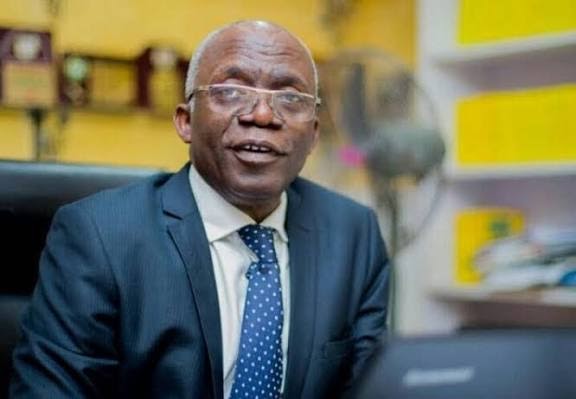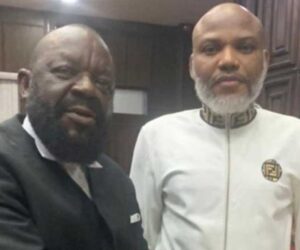Human rights lawyer and Senior Advocate of Nigeria, Femi Falana, has defended the rights of Nigerian workers to unionise and embark on strike actions.
Falana also described recent attempts to vilify labour unions as both “legally baseless and morally irresponsible.”
Speaking in an interview with ARISE News on Monday, Falana said the right to unionise and bargain collectively is enshrined in the Nigerian Constitution and backed by international conventions ratified by the country.
“Unionisation is allowed by law under Section 40 of the Constitution, which guarantees freedom of association. Nigeria is also bound by ILO Conventions 87 and 98, which recognise the rights to unionisation and collective bargaining.”
Falana’s comments come in the wake of the recent face-off between the Petroleum and Natural Gas Senior Staff Association of Nigeria and the management of Dangote Refinery over alleged anti-labour practices.
The union had accused the company of sacking and redeploying workers who joined PENGASSAN and of refusing to recognise it as a legitimate representative body within the refinery.
The dispute, which led to a nationwide strike threat by oil workers, was temporarily resolved after the intervention of the Federal Government led by the Minister of Labour and Employment, Muhammadu Dingyadi, and the National Security Adviser, Nuhu Ribadu, leading to the suspension of the strike.
However, the episode reignited debate over workers’ rights in private enterprises and the broader state of labour relations in Nigeria’s oil and gas sector.
According to Falana, the situation was avoidable if the government and employers had acted responsibly and complied with existing labour laws.
“The two strikes were avoidable. When workers are forced to strike over issues that were settled since the colonial era, then the blame lies with the government,” he said.
He dismissed claims that oil and gas unions were sabotaging the economy or threatening national security, noting that organised labour has been an integral part of Nigeria’s history for over a century.
“The first trade union in Nigeria was formed in 1912 before the 1914 amalgamation. It’s too late in the day to say unions should not exist,” he said.
On the mass sackings of oil workers, Falana clarified that the dispute was rooted in unfair labour practices, not the right to unionise.
“What happened was that some workers were sacked and redeployed to other units. By law, once you are a junior employee, you are automatically entitled to union representation,” he explained.
Falana argued that strikes occur because government and employers often refuse to negotiate in good faith.
He said, “Strikes are the last resort when employers fail to respect workers’ rights. It’s not about sabotage—it’s about justice.”
Responding to claims that unions have become monopolistic or excessively powerful, Falana said the Trade Union Act already specifies sectors where unionisation is restricted, such as the military and police.
Even then, he said, workers in those sectors are entitled to form consultative committees to protect their interests.
He also dismissed allegations that union leaders enrich themselves at the expense of their members.
“I don’t know any union leader who is a billionaire. In 2005, the Obasanjo administration claimed labour unions were too powerful and tried to weaken them. Today, because of the exploitation of workers, the NLC and TUC have become more united,” he stated.
Falana praised unions like PENGASSAN and NUPENG as responsible organisations that only resort to strikes after exhausting all legal channels.
“They won’t go on strike without cause. Given their importance to the economy, the government must engage them constructively,” Falana said.
He urged the government and employers to treat unions as partners in progress, not adversaries.
“To allow unionisation is to engage them meaningfully. If companies make profits, workers should benefit. If not, employers should open their books. Workers are stakeholders—they contribute their sweat and labour to keep companies afloat,” he stated.
Falana also debunked claims that unions misuse members’ check-off dues, saying, “PENGASSAN does not collect ‘pimpillion’ in dues. The funds are used to support workers in times of need.”
He asserted that by reaffirming that labour rights are fundamental to Nigeria’s democracy and cannot be suppressed.
“It is too late in the day to say there should be no unions in Nigeria. Labour rights are not mere legal formalities—they are part of our constitutional and global labour standards,” he stated.
Click to signup for FREE news updates, latest information and hottest gists everyday
Advertise on NigerianEye.com to reach thousands of our daily users


.jpeg)






